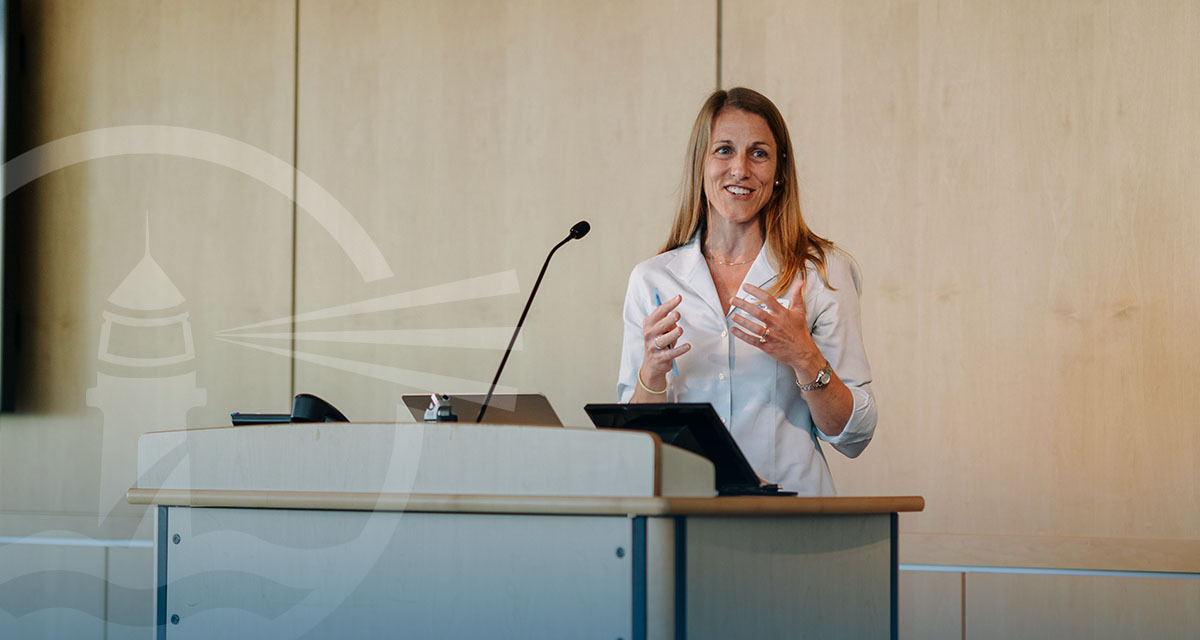Hope & Health Conference 2024 Addresses Critical Public Health Issues
On June 8 Gordon College hosted its second annual Hope & Health Conference. Organized by Gordon’s graduate public health program, the conference facilitated networking and connections among local healthcare professionals and public health organizations. This year’s conference, themed “Shining a Light in Public Health,” sought to strengthen those connections to shine an even brighter light on a world in need of hope.
“As Christians we’re called to serve communities, and in public health that’s exactly what we do,” said Dr. Heather Sipsma, director of Gordon’s Master of Public Health (MPH) program, pictured above. “Since Christians and nonprofits have the same goal, [this public health conference] is a way for us to come together, build those networks and have an even greater impact.”
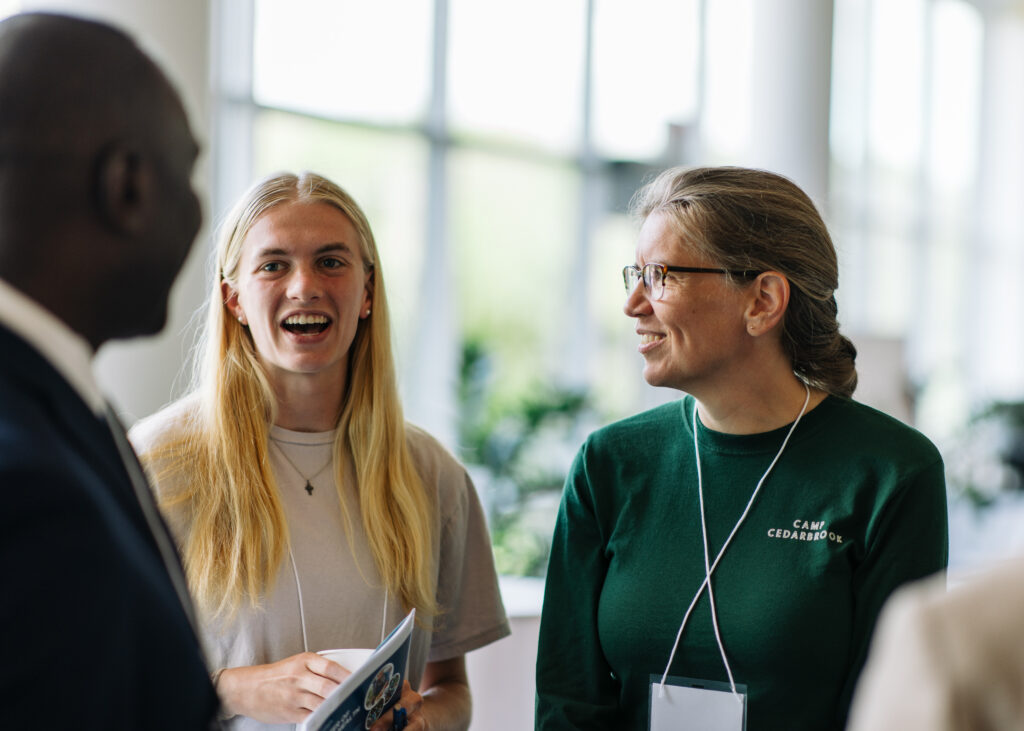
Discussing Current Issues
Following an introductory presentation from Gordon’s President, Dr. Mike Hammond, attendees broke out into sessions centered on community-based public health and clinic-based public health.
The community-based public health breakout tackled topics of human trafficking, nutrition and substance abuse. B. J. Osuagwu ’20 of Healthy Waltham and Joanne Bilotta and Josh Rosenthal of the Council to Prevent Opioid Dependence discussed how their organizations help those with food insecurity and provide aftercare programs for substance abuse, respectively. Dr. Mary Speta ’14 of Amirah, Inc. and Elisa Johnson and Donna Plourde of the New Hampshire Traffick-Free Coalition led a discussion on how communities can stop human trafficking.
“Relationship is the intervention,” Speta said. “The same way that human trafficking is the result of broken relationships, the way that we are able to strengthen and protect our communities is through healthy, healing relationships.”
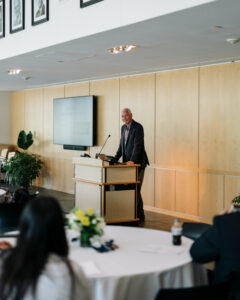
The clinic-based public health session discussed pregnancy centers and health care delivery, with speakers like MPH student Ronald Kamara ’26M of Uganda Catholic Medical Bureau and Cheralyn Johnson of Community Care Cooperative. Rachel Nguyen of Harmony Women’s Care and Diane O’Toole from the Boston Center for Pregnancy Choices discussed their faith-based medical models that help women not only receive pregnancy care but spiritual care as well. “Since 2016 we have presented the gospel 1,076 times, and 483 women have come to Christ,” said Nguyen.
Following the breakout sessions Dr. Greg Glenn, a vaccinologist and biopharmaceutical executive and supporter of Gordon’s MPH program, delivered the keynote address. Glenn served as the president of research and development at Novavax for decades, where he spearheaded many key achievements, including maternal and older adult RSV vaccines, a COVID-19 prototype (Nuvaxovid) and updated XBB 1.6 vaccines.
Despite misconceptions and controversies around vaccines, Glenn posited that, “With the exception of safe water, no other modality has had such a major impact on mortality reduction and population growth.” When it comes to the intersection of this public health topic and the church, Glenn said, “We did this interesting study that found that leadership of the church has a big impact on what . . . the believing community does towards vaccines.” He believes church leaders have significant impact on helping their communities see “the benefits of vaccines for their own population.”
Integrating Faith and Public Health
The afternoon’s two panel discussions focused on the role of faith in public health organizations and for practitioners. In the first discussion Ana Valverde ’96 of the Boston Center for Pregnancy Choices, Kamara, Nguyen and Speta explored questions like, “What does it mean to integrate faith into a public health organization?” and “How can the public health community interact positively with faith communities?”
Kamara, who works on HIV-related faith programming in Uganda, explained the social and legal challenges faced by some marginalized groups, like commercial sex workers, in receiving care HIV care. “In our HIV program we try to creatively work with community-based organizations . . . to reach out to them and encourage them to come in and at least get an HIV test,” he said. In doing so “we demonstrate and share evidence that faith, love and charity inspired by our Christian teachings works.”
The second panel discussion, featuring both Johnsons and Osuagwu, covered topics such as caring for practitioners in public health, managing burnout and exploring mental health from a Christian perspective. Relying on others, God and therapy were the resounding answers.
For Osuagwu working with people teetering on the line of food insecurity can be taxing. “It’s important to be an emotionally healthy supporter and worker,” he says. “I’m blessed because I have such a strong community around me, [made of] a faith-based community and a non-faith-based community, to help keep me propped up.”
“For me it’s the freedom to not be the savior, but to depend on the Savior every day,” said Johnson. Even as Christians work to address the suffering in the world, “there comes a point when you realize you’re the one who needs help,” she says. “Trust and rest in his goodness, his sufficiency, his heart to heal, to provide.”
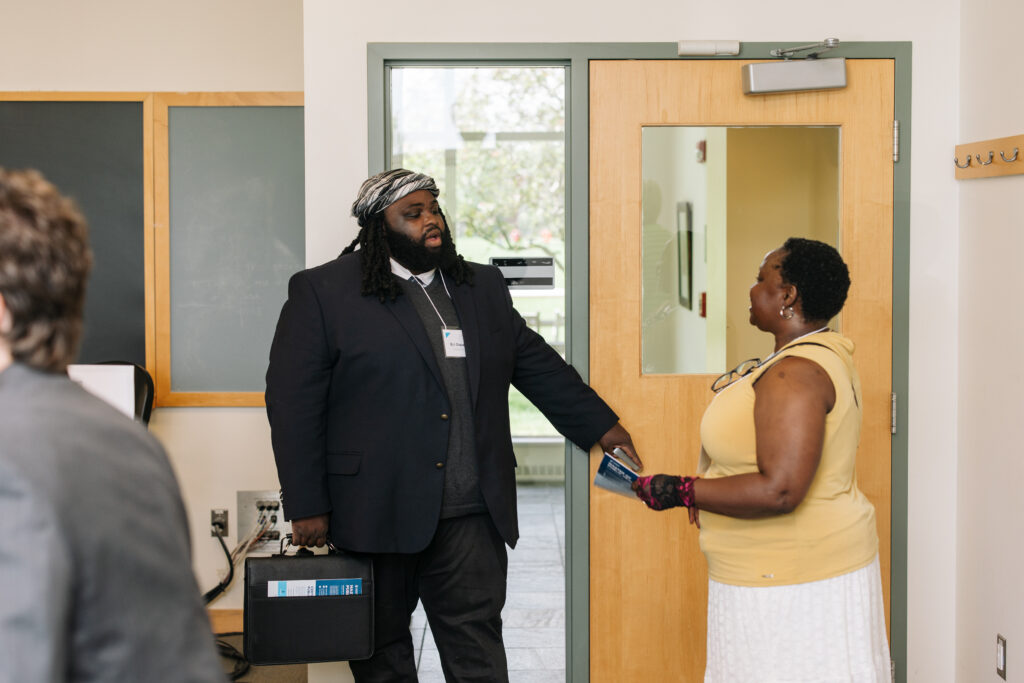
A Connected Community
To end the conference attendees gathered one last time to hear from Dr. David Wright, a former member of the board of trustees at Gordon and executive director of BMA TenPoint, an organization that partners with black churches, nonprofits and other organizations to connect communities in Greater Boston. He envisions a unified ecosystem where all the areas of public health work together and share ideas to help more people.
“The beauty of ecosystems is that they’re very strong, they protect themselves, they grow because each member of the ecosystem is actually helping the other members of the ecosystem,” Wright said. “This might be the next positive evolutionary step in the idea of public health because it’s something that affects all of our communities . . . We’re always looking for how we can best engage our communities with the resources we have, but ultimately with the gospel of Jesus Christ.”
MPH student Rachel Nygren ’25M summed up the conference: “[It’s] really encouraging to see the intersectionality of faith and public health and the practical ways that organizations are being like the hands and feet of Jesus in New England.”
Next year’s conference is scheduled for April 5, 2025.
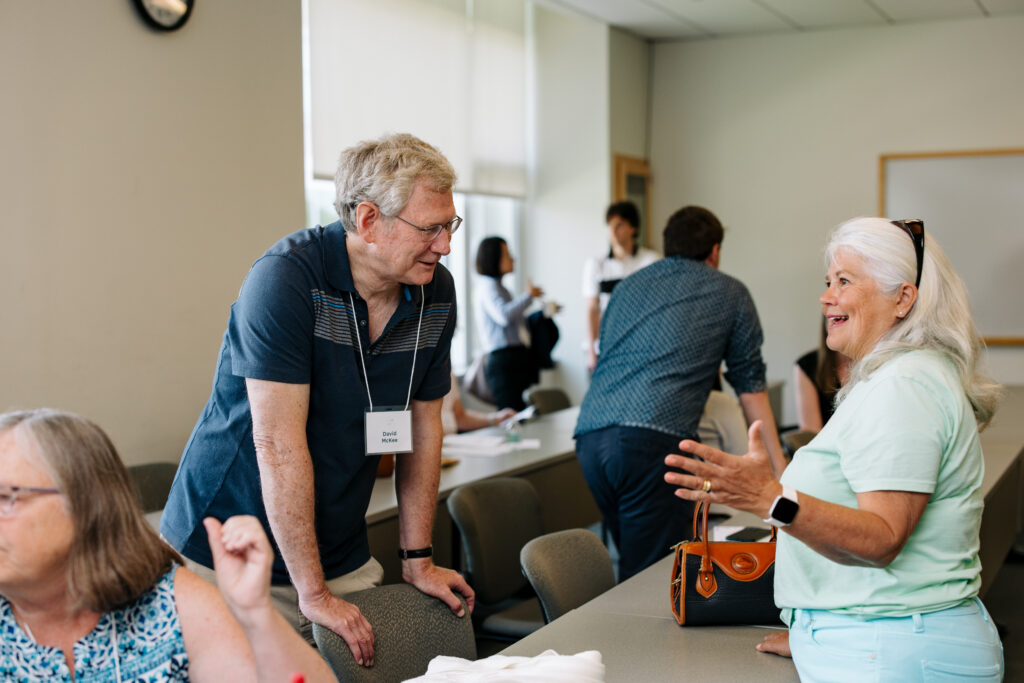
 The Bell
The Bell